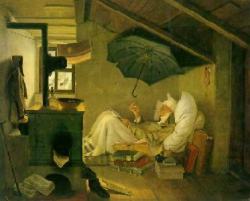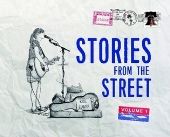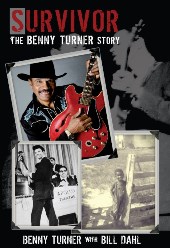
Singer-songwriter Katie Ferrara has chosen a particular way to make a musical career.
Instead of playing the pubs and clubs, she is busking on the piers and promenades.
 »I felt like I wasn't going anywhere with my music career and needed to do something different. I used to play a lot
of shows on the Sunset Strip in Hollywood, where I would have to sell tickets for people to come see me. I got sick
of not making any money and struggling to get people to come out. When I started playing in the street, I was immediately
tipped by people passing by ...«
»I felt like I wasn't going anywhere with my music career and needed to do something different. I used to play a lot
of shows on the Sunset Strip in Hollywood, where I would have to sell tickets for people to come see me. I got sick
of not making any money and struggling to get people to come out. When I started playing in the street, I was immediately
tipped by people passing by ...«
Katie relates her busking experiences in 14 Stories from the Street,
part documentary, part short-story collection, and shares the ups and downs, the obstacles and joys,
the rules and regulations, the strategies and suggestions of a proficient street performer.
»I watched a teenage girl put a dollar in my basket. She stayed for a few minutes to listen, smiled and walked away ...
A couple stopped to listen. The man was holding a bouquet of flowers and had his arm around his girlfriend. About
halfway through the song, he grabbed the girl and kissed her. Then he put some bills in my basket.
A few songs later during my set, a little girl and her father came to listen. The girl started wiggling around and
"twerking," shaking her butt like Rhianna in her music videos ...«
Katie's musical journey takes her from her favourite haunts in her native Los Angeles
to the annual Ferrara Buskers Festival in the Emilia-Romagna in northern Italy.
Watch out! She will be walking European streets again, and Vol. 2 of her street diary is certainly in the pipeline.
»My dream is to be able to play at busking festivals all over the world, write about my experience, and keep making a living playing music.«
![]()
Katie Ferrara, Stories from the Street, Volume 1.
Imagine Cat Music, 2017, pp110, €37,52

![]()
www.katieferrara.com
 »He played the guitar. You know that old expression, he could play the guitar just like ringing a bell? That's
what I used to say about Blake. He would pick up that old instrument of his and the notes would just come
tumbling out, faster than you could sing them. But each note was just a perfect little silver bell, floating off into the air.«
»He played the guitar. You know that old expression, he could play the guitar just like ringing a bell? That's
what I used to say about Blake. He would pick up that old instrument of his and the notes would just come
tumbling out, faster than you could sing them. But each note was just a perfect little silver bell, floating off into the air.«
Ex-military cop Jack Reacher, born on an US Army base in West Berlin and becoming a hobo after his discharge, rather
incidentally gets off a Greyhound bus and walks into a small town in Georgia to look for Blind Blake,
a blues guitar player who has died 60 years ago and has been possibly murdered. Unfortunatly, the day before
somebody else has been murdered and Jack Reacher gets arrested. This is just the start for much bloodshed.
Killing Floor is the first book in the Jack Reacher thriller series (also hero of two not-so-noteworthy movies starring Tom Cruise).
Its hero is tough, violent and remorseless, but he is also upright and likeable, and has a pronounced sense of justice.
As the body count mounts, Jack Reacher uncovers a mammoth counterfeiting operation and also
learns about Blind Blake's sorry fate...
Lee Child, Killing Floor. Putnam, 1997, ISBN 0-3991-4253-3
(www.leechild.com)
Benny Turner has been more than 60 years in the music business performing gospel, R&B, soul and blues.

Benny had been born in 1939 in Texas. Times were tough then.
But Benny had the music.
Benny relocated to Chicago in the late 1950s, where he emerged as one of the first electric bassists on the blues circuit. At the same time, his older half-brother Freddie King started
Benny first tried out a gospel outfit, later joined Freddie's band. Freddie soon made a reputation, one of the Three Kings of Blues (besides BB King and Albert King). He had a couple of hits in the early 1960s and his distinctive guitar style, based on Texas and Chicago influences, inspired countless guitar players.
Benny and Freddie were absolutely inseparable, just like Laurel and Hardy. However, Freddie unexpectedly died in 1976.
Benny became deeply depressed and was even hospitalized.
Eventually, Benny turned up again. He first joined Mighty Joe Young, then Marva Wright, the Blues Queen of New Orleans. After Marva passed away, he took the band over: Even though it was never my goal to be a front man, it seemed like it was time, ready or not.
His first solo album was released in 1997. He did never look back nor slowed down ever since. On My Brother's Blues Benny is paying homage to Freddie. The 11 select blues, soul and funk tracks from Freddie King's repertoire feature Benny on bass, guitar and vocals, leading an all-star ensemble (including luminaries such as the late Otis Clay and others).
His autobiography Survivor - The Benny Turner Story, co-written with Bill Dahl, has loads of anecdotes and stories from the road. He is a genuine character who knows a thing or two and that the end is not in sight yet.
Photo Credits:
(1ff) Book/CD Covers,
(5) Benny Turner,
(6) Freddie King
(7) Katie Ferrara
(from website/author/publishers).